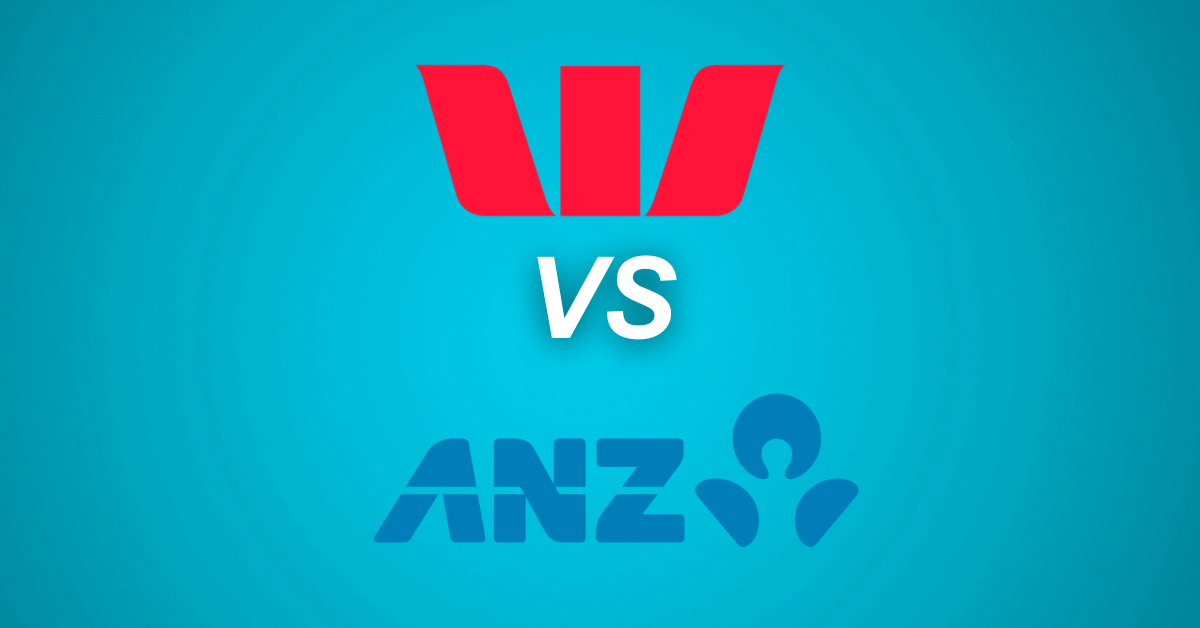Navigating the complexities of financial obligations can be challenging, especially when faced with tax debt. Many business owners and entrepreneurs wonder if they can tap into their superannuation to alleviate these burdens.
Understanding the relationship between super funds and tax liabilities is crucial, as it could offer some relief or strategic planning opportunities.
In this post, we will explore whether using super to pay taxes is a viable option and provide insights into super fund tax relief.
By gaining clarity on these options, you can make informed decisions to manage your financial responsibilities effectively.
Superannuation is a crucial aspect of financial planning in Australia. This section will explore the basics of superannuation, how it works, and its importance for your financial future.
Basics of Superannuation
Superannuation, often referred to as “super,” is a retirement savings system in Australia. It’s designed to help individuals accumulate funds throughout their working life to support them in retirement.
The Australian government mandates that employers contribute a percentage of an employee’s earnings into a super fund. This contribution is currently set at 10.5% of the employee’s ordinary time earnings.
Individuals can also make voluntary contributions to their super fund to boost their retirement savings. These contributions can be made before or after tax, depending on personal circumstances and financial strategies.

How Superannuation Works
Superannuation operates on a long-term investment model. The funds in your super account are invested by professional fund managers to grow over time.
Most super funds offer a range of investment options, from conservative to high-growth strategies. Members can choose their investment mix based on their risk tolerance and financial goals.
As you approach retirement, you can access your super funds. The age at which you can access your super, known as the preservation age, ranges from 55 to 60, depending on your birth year.
Once you reach the preservation age and meet a condition of release, you can withdraw your super as a lump sum, set up a regular income stream, or a combination of both.
Importance of Superannuation
Superannuation plays a vital role in ensuring financial security in retirement. It provides a structured way to save and invest for the future.
The power of compound interest over decades of working life can significantly boost your retirement savings. This growth potential makes super an essential tool for building long-term wealth.
Superannuation also offers tax advantages. Contributions and earnings within the super system are generally taxed at lower rates than outside super, helping to maximize your savings.
Moreover, super helps reduce reliance on government pensions, providing individuals with greater financial independence and control over their retirement lifestyle.
Tax Debt Challenges
Tax debt can pose significant challenges for individuals and businesses. This section will explore common causes of tax debt, the consequences of unpaid tax liabilities, and strategies for managing these obligations.

Common Causes of Tax Debt
Tax debt often arises from a variety of circumstances, some of which may be beyond an individual’s immediate control.
One common cause is underestimating tax obligations, particularly for self-employed individuals or those with multiple income sources. This can lead to insufficient tax being paid throughout the year.
Changes in financial situations, such as a sudden increase in income or receiving a large capital gain, can also result in unexpected tax liabilities if not properly planned for.
Sometimes, cash flow issues in businesses can lead to the inability to pay tax obligations on time, resulting in accumulating debt.
Errors in tax returns or misunderstanding tax laws can also lead to unexpected tax debts when discovered during audits or reviews by tax authorities.
Consequences of Unpaid Tax Debt
Failing to address tax debt can have serious repercussions for individuals and businesses.
The Australian Taxation Office (ATO) can impose penalties and interest on unpaid tax debts, significantly increasing the amount owed over time.
In severe cases, the ATO may take legal action to recover the debt, which could include garnishing wages, seizing assets, or even initiating bankruptcy proceedings.
Unpaid tax debt can also negatively impact credit scores, making it difficult to obtain loans or credit in the future.
For businesses, tax debt can lead to the loss of government contracts and difficulty in securing business loans or investments.
Managing Tax Liabilities
Effective management of tax liabilities is crucial for maintaining financial health and avoiding the accumulation of tax debt.
-
Stay organized: Keep accurate records of income, expenses, and tax-related documents throughout the year.
-
Plan ahead: Set aside money regularly to cover expected tax obligations.
-
Seek professional advice: Consult with a tax professional to understand your tax obligations and plan accordingly.
-
Use online tools: Utilize the ATO’s online services to track your tax position and make payments.
If you find yourself facing tax debt, it’s important to act quickly. Contact the ATO to discuss your situation and explore payment options.
Consider setting up a payment plan if you can’t pay the full amount immediately. The ATO often works with taxpayers to establish manageable repayment schedules.
Remember, ignoring tax debt will only make the situation worse. Proactive management and open communication with tax authorities are key to resolving tax debt issues.
Using Super for Tax Payments
The question of using superannuation to pay tax debt is complex and subject to strict regulations. This section will explore the rules for accessing super, potential tax relief options, and the risks associated with using super to pay taxes.
Rules for Accessing Super
Accessing superannuation before retirement is generally restricted and subject to specific conditions of release.
The primary condition for accessing super is reaching your preservation age and retiring. The preservation age ranges from 55 to 60, depending on your birth year.
In some cases, you may be able to access your super early under financial hardship provisions. However, these are strictly defined and do not typically include tax debt as a qualifying reason.
Other conditions for early release include severe financial hardship, compassionate grounds, terminal illness, or permanent incapacity. Tax debt alone does not usually meet these criteria.
It’s important to note that even if you meet a condition of release, using super to pay tax debt may not be allowed or advisable due to potential penalties and long-term financial impacts.
Super Fund Tax Relief Options
While directly using super to pay tax debt is generally not permitted, there may be some indirect ways your super can provide relief.
If you’re over preservation age and have retired, you can access your super and use those funds as you see fit, including paying tax debt. However, this should be carefully considered as it may impact your long-term retirement plans.
Some super funds offer loan options to members, which could potentially be used to address tax debt. However, these loans must be repaid to the fund and may have specific terms and conditions.
In cases of severe financial hardship, you may be able to apply for early release of some super funds. While tax debt alone doesn’t qualify, if your overall financial situation meets the criteria, you might be able to access some funds.
Risks of Using Super for Taxes
Using superannuation to pay tax debt, even when legally possible, comes with significant risks and potential downsides.
The primary risk is the long-term impact on your retirement savings. Super is designed to provide for your retirement, and using these funds early can significantly reduce your future financial security.
There may be tax implications for withdrawing super early. Depending on your age and the type of withdrawal, you may face additional taxes on the withdrawn amount.
Using super for short-term debt relief could lead to a cycle of financial stress if the underlying issues causing the tax debt are not addressed.
If not done correctly, attempting to access super for tax debt could result in penalties from both the ATO and your super fund.
Strategies for Tax Debt Relief
When facing tax debt, it’s important to explore various strategies for relief. This section will discuss alternative payment plans, the importance of seeking professional advice, and available government assistance programs.
Alternative Payment Plans
The Australian Taxation Office (ATO) offers several options for taxpayers struggling with tax debt.
Payment plans allow you to pay your tax debt in regular installments. These can be set up online for debts up to $100,000, or through discussion with the ATO for larger amounts.
Interest-free payment arrangements may be available for small businesses and sole traders in certain circumstances. These arrangements can provide breathing room to manage cash flow while addressing tax obligations.
In some cases, the ATO may consider reducing or waiving interest charges if you can demonstrate that paying the full amount would cause serious financial hardship.
It’s crucial to communicate with the ATO early and maintain any agreed payment arrangements to avoid further penalties or legal action.
Seeking Professional Advice
When dealing with significant tax debt, seeking professional advice can be invaluable.
A tax professional or financial advisor can help you understand your tax obligations and identify strategies to manage your debt effectively.
They can assist in negotiating with the ATO on your behalf, potentially securing more favorable payment terms or exploring options for debt reduction.
Professional advisors can also help you review your overall financial situation and develop a plan to prevent future tax debt issues.
Consider consulting with a registered tax agent or certified public accountant who specializes in tax debt resolution for the most relevant and up-to-date advice.
Government Assistance Programs
The Australian government offers various programs that may indirectly help with managing tax debt.
The ATO’s Small Business Superannuation Clearing House is a free service that can help small businesses manage super payments, potentially freeing up resources to address tax debt.
For businesses facing financial difficulties, the ATO’s Small Business Restructure Rollover may provide tax relief when restructuring your business operations.
The Australian Small Business and Family Enterprise Ombudsman can provide advice and advocacy for small businesses dealing with tax issues.
In times of natural disasters or other crises, the government may offer special tax relief measures. Stay informed about any such programs that may apply to your situation.
Planning for Financial Security
Ensuring long-term financial security involves more than just managing current debts. This section will explore strategies for building a strong super fund, reducing future tax liabilities, and seeking long-term financial solutions.
Building a Strong Super Fund
A robust superannuation fund is key to financial security in retirement.
Make regular contributions to your super fund beyond the mandatory emloyer contributions. Even small additional amounts can significantly impact your retirement savings over time.
Consider salary sacrificing into your super. This can reduce your taxable income while boosting your retirement savings.
Review your super fund’s performance regularly and compare it with other funds. Don’t hesitate to switch to a better-performing fund if necessary.
As you approach retirement, reassess your super investment strategy. You may want to adjust your risk profile to protect your accumulated wealth.
Reducing Future Tax Liabilities
Proactive tax planning can help minimize future tax debts and financial stress.
Stay informed about tax deductions relevant to your situation. Keeping good records of deductible expenses throughout the year can reduce your tax bill.
If you’re self-employed or run a business, consider making Pay As You Go (PAYG) installments to spread your tax payments throughout the year.
For investments outside super, understand the tax implications of different investment types. Some investments may offer tax advantages that align with your financial goals.
Consider seeking advice on tax-effective investment strategies that can help manage your tax liabilities while building wealth.
Seeking Long-term Financial Solutions
Developing a comprehensive financial plan is crucial for long-term security and avoiding future tax debt issues.
Work with a financial planner to create a holistic strategy that covers budgeting, saving, investing, and tax planning.
Regularly review and adjust your financial plan as your circumstances change. This can help you stay on track and avoid financial surprises.
Consider diversifying your income sources to create financial stability. This could include a mix of employment income, business income, and passive income from investments.
Educate yourself about personal finance and tax matters. The more you understand, the better equipped you’ll be to make informed financial decisions.
Remember, financial security is a journey, not a destination. Continual learning and adaptation are key to navigating changing financial landscapes and maintaining long-term stability.




